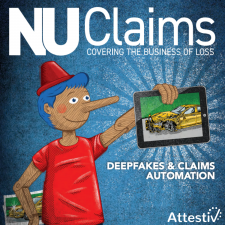While it’s natural to view Digital Transformation as a buzzword “du jour,” recent reports show the US is operating at less than 20% of its digital potential. If you find that number distressing, you may be even more surprised at some of the industry sectors that have been found to be lagging in their digital initiatives. Consider a recent March 2019 article that cites banks and insurers falling behind in their digital transformation initiatives according to a Capgemini study.
Citing a few specifics from the study, only 41% of executives and 33% of total respondents indicated confidence in support the digitization of their business. What may be even more telling is that the same survey in 2012 yielded a 51% and 41% confidence from executive and total respondents, respectively, demonstrating a concerning downward trend.
A second article reflecting on the same study data suggests the low confidence may be due to the lack of skills, leadership and vision to enact necessary change. Taking a closer look at results from the insurance industry, only 30% of insurance responders feel they have the right digital capabilities for improving customer experience. In line with that, only 35% of surveyed insurance organizations used mobile channels and apps to provide customer service at the time of the 2018 study.
Given the millennial generation has grown up using technology, it should be no surprise that the convenience of using a mobile phone for all types of transactions represents table stakes for consumer-facing businesses. Surely lack of confidence in digitizing a business is not a viable reason to ignore the transition that is happening.
While the declining data paints a relatively bleak picture, you might wonder if diminishing returns may have stagnated some digital transformation initiatives over the past few years. While many areas of the businesses surveyed may have remained in the so-called “dark ages,” could it have been a result of marginal returns with respect to the ambitious efforts required? If that is indeed the case, what can help rekindle progress toward digital modernization?
Well, it’s not unusual that every few years a game changing technology arrives that can drive modernization. Let’s consider blockchain, or more generally, distributed ledger technology. While blockchain may be best known as a technology for electronic funds transfer, such as Bitcoin, the underlying network offers an immutable ledger that can be shared within and across organizations. Perhaps what’s most intriguing is organizations can partake of the benefits, without having to own or run the technology.
While pundits may be quick to point out potential vulnerabilities of blockchain, such as the highly unlikely potential to sway the majority of miners/nodes to break the powerful consensus model, it may be worth transcending such discussions to consider the potential benefits the technology brings to the table. After all, like any new technology, risks and gaps are rapidly being addressed.
Consider instead that blockchain possesses a couple of key attributes to help enable and accelerate digital transformation:
In the case of public or even consortium-based blockchain, the skills and leadership to deploy digital innovation no longer have to reside within an organization. Instead blockchain democratizes a consistent ledger for sharing and communication, only requiring organizations to plug in rather than building and deploying the infrastructure themselves. This means organizations of any size can enjoy the benefits, a hallmark of a disruptor
The game changing functionality that blockchain delivers in the fintech or insurance sectors is of substantial magnitude. Whether we talk about efficiency of fund transfers and payments in the finance industry or validation and sharing of digital assets for the insurance industry, immediate benefits are available to any industry organization that participates. Interestingly, with these benefits come aspects of modernization that may have been abandoned in the past, such as fully digitized customer experience that can build upon the ledger
Ultimately, blockchain may create new urgency for organizations to digitize and modernize their infrastructure. A recent CB insights article articulates how blockchain can disrupt the insurance industry, with one of the strongest value propositions being eliminating or reducing the over $40B in annual insurance fraud. Organizations who ignore such benefits will ultimately be left behind, losing business to their competitors who have already adopted.
With blockchain, we find ourselves at a crossroads of a new technology that organizations are being forced to decide on. Perhaps some organizations have already figured out how it figures into accelerating digital transformation initiatives, while other have largely ignored it as noise. The implications of embracing this technology can impact numerous operational business aspects from internal systems to customer interactions, and ultimately may dictate who will be the industry leaders of the future.
Drawing a familiar parallel, back in 2008, I co-founded a cloud company where we urged customers to adopt or find themselves at a disadvantage to their competitors who do. It is rather evident to see the transformation that occurred 11 years later and who the winners are.
Once again, organizations face a similarly important adoption decision that could determine who will be the leaders and laggards in the years ahead. What will your decision be?






